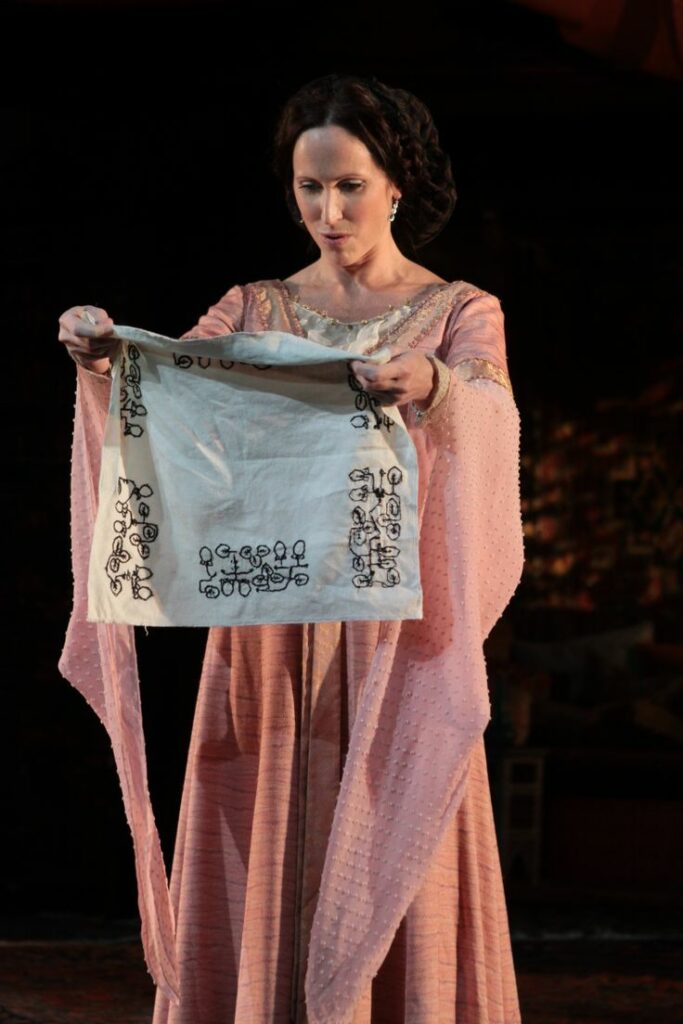
Welcome back to another Geeklet College story! Unfortunately, I’m nearing the end of my first-ever college Shakespeare class, but I hope to take another one once it’s offered. My college runs Shakespeare in two parts: the first part of his life and the comedies, and the second is the end of his life and the tragedies. I’m in the second half of the class, but the first part isn’t being offered for next semester, so I have to wait. This class sparked my interest in women and gender studies in literature, so I signed up for a WGSS class for next semester. I don’t know if I’ll minor in it yet, but since I liked this class so much, I figured, why not?
We’ve now read Othello, Romeo and Juliet, and King Lear. All besides Romeo and Juliet were new reads for me, and I greatly enjoyed them. Lear was pretty hard for me to understand, and I would argue that this is the most complicated read so far, but I still think I understood it well. I think I’ve seen so many interpretations of Romeo and Juliet that I’ve kind of become desensitized to it. Rereading it yet again didn’t do anything for me, though I did find the conversation about whether or not Romeo and Juliet were actually in love interesting (no, they weren’t, and I will argue that for as long as possible).
The play that falls just behind Macbeth for me is Othello. The content of Othello was pretty horrific with the sheer amount of racism and misogyny, but to me, the analysis of the characters was fascinating. I wrote my second essay for the class on the Goldilocks’ rule of gender in Othello. You have Desdemona, the ideal woman for men at the time. Bianca, who is the unideal woman, and finally, Emilia, who is “just right” in a sense.
I wish Emilia were talked about more because there is so much depth to her character and her relationship with Desdemona and Iago that is barely touched upon, from what I can find. I mean, Iago is awful to Emilia, and she still does what he asks of her. There seems to be a mutual lack of love between them, though, whereas, with Desdemona and Othello, Desdemona still loves Othello despite how awful he is to her. I found it really interesting that so many of the relationships that Shakespeare writes are filled with unconditional and frankly insane love, but Iago and Emilia really don’t seem to love each other at all. They’re just doing what’s “required” of them in a marriage.
When you search the relationship between Iago and Emilia, the results typically say that she loves him because she does what he asks. I would argue against that. I can’t find a single part of the play where Emilia shows that she loves Iago but rather is simply obedient to him. The issue of associating obedience with love is an entirely different issue, and I thought in this century, we stopped associating doing whatever your partner wants with love.
I think Emilia fell victim to what marriage was in the 17th century. Women were expected to get married not only for social acceptance but to be financially stable. Love came second. So, I believe Emilia is really just going about her job as a wife at the time.
Her “Are you a man?” speech is what made me so interested in Lady Macbeth. Emilia’s speech on female sexuality was similar. “Their wives have sense like them. They see, and smell, And have their palates both for sweet and sour, As husbands have.” I remember reading this for the first time and saying, “Woah.” I feel like a female character openly admitting that women should be able to cheat on their husbands is so out of pocket for that time, but the way she worded it made so much sense as well. It’s almost as if she cheated herself, but I don’t have enough evidence for that theory.
The depiction of female friendships was also very interesting to me. Emilia asks to be laid next to Desdemona when she dies, which speaks to how close the two women are. Even in the scene where Emilia confides in her about how women should cheat, they appear to be extremely close. Those were a few examples, and though it wasn’t mentioned much, their friendship. However, men get in the way of their friendship when Iago asks Emilia to take Desdemona’s handkerchief. And though she loves Desdemona, she has to do what her husband asks of her, even though it’s not necessarily right. Today, the belief lies in choosing friends over who you’re dating, but Othello flips it and emphasizes choosing your partner over your friends.
I would love to learn more about Emilia because so much is unknown about her. I often see retellings of Lear, Hamlet, or Macbeth, but someone has to write their own creative interpretation of Emilia for my own sake. Maybe I’ll do that at some point. Who knows.

I proposed my interpretation of `Othello` based on a certain hypothesis about the true author of the tragedy (this is a famous Shakespearean question). I hope someone will be interested
https://www.researchgate.net/publication/349589977_On_the_hidden_meaning_of_Shakespeare's_tragedy_Othello
um. not sure whether applying modern values is useful. most people historically have had little agency.
The Hogarth Shakespeare Project version of Othello is called New Boy, by Tracy Chevalier. I haven’t read it, but it is on my TBR list. Toni Morrison wrote her version, called Desdemona. I just learned about it and haven’t read it.
Thanks for your post. I have seen a few versions of Othello and agree that Emilia usually is given short shrift.